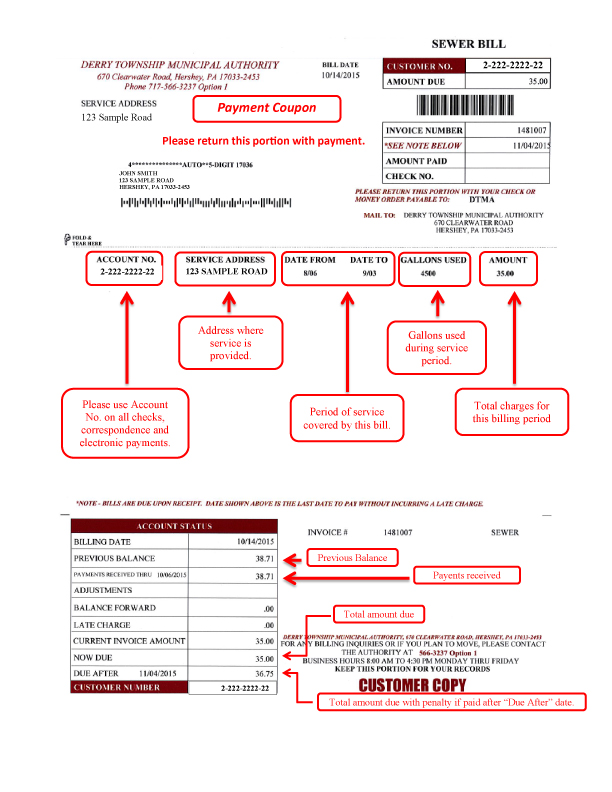The sewer bill is a crucial yet often overlooked component of municipal utility costs that homeowners face each month. Understanding the intricacies of this bill is essential for managing household expenses effectively. The sewer bill primarily represents the costs associated with the treatment and disposal of wastewater produced by residential properties. Various elements contribute to the calculation of this bill, and it is beneficial for homeowners to comprehend these aspects thoroughly.
Typically, sewer bills fall into two main categories: flat-rate billing and metered billing. Flat-rate billing charges a consistent fee for sewer service, regardless of water usage. This method simplifies budgeting for homeowners as they can predict their expenses. However, the lack of correlation to actual water consumption might seem inequitable for those who use less water. On the other hand, metered billing directly correlates with water usage, where the sewer bill reflects the volume of water that enters the sewer system from a household. This method can incentivize conservation, as homeowners may adjust their water usage habits to minimize costs.
Many municipalities employ a combination of these approaches, leading to hybrid billing systems. For instance, some households might pay a base fee along with a variable charge based on water consumption. Understanding your specific billing method is foundational for deciphering your sewer bill and enables better financial planning.
To further dissect the components of a sewer bill, one must consider the various charges that may appear. Commonly included are fixed fees, usage fees, and additional surcharges. Fixed fees warrant a baseline charge for maintaining the sewer infrastructure, ensuring that the system remains functional and capable of processing waste effectively. Alternatively, usage fees fluctuate with the volume of wastewater treated, aligning charges closer to individual household consumption.
Moreover, certain jurisdictions impose surcharges for services such as stormwater management or environmental compliance. Such fees support municipal initiatives aimed at protecting local ecosystems and adhering to environmental regulations. Awareness of these additional charges can provide insight into wider community efforts and may highlight opportunities for conservation measures that can mitigate costs.
Another critical aspect of understanding sewer bills is the role of wastewater treatment plants. These facilities are essential in the process, as they process the sewage generated by households. The costs incurred by these plants directly influence the overall expense reflected in sewer bills. Treatment plants upgrade and maintain their equipment to ensure efficacy and compliance with environmental standards, which can impact the charges passed on to consumers.
Aside from the technical components of billing, it is essential to understand the broader implications of sewage management. Effective wastewater treatment is vital for public health and environmental sustainability, contributing to clean rivers, lakes, and oceans. By paying their sewer bills, households indirectly invest in crucial infrastructure that enhances community welfare.
Homeowners may also encounter fluctuations in their sewer bills due to seasonal variations. In some regions, sewer rates are adjusted based on climate conditions, aligning with actual water usage patterns. During dry seasons, usage may decline, resulting in lower bills, whereas wet seasons may elevate consumption due to increased landscaping and irrigation needs. Awareness of these patterns can assist homeowners in preparing for potential shifts in billing amounts.
While sewer bills primarily concern residential properties, commercial and industrial enterprises face their own unique challenges regarding wastewater management. Larger establishments may have specialized needs, necessitating tailored solutions for sewage disposal. Consequently, commercial sewer rates often differ significantly from residential rates, reflecting the complexities involved in treating higher volumes of waste. Understanding the distinct considerations for business sewage bills can shed light on broader water management practices in a community.
Disputes concerning sewer bills can emerge, particularly from bills perceived as excessive or erroneous. In cases of discrepancies, homeowners are encouraged to scrutinize their bills for accuracy and inquire about any surcharges or increases. Engaging with local utility companies can clarify billing structures and rectify any misunderstandings. Many municipalities provide avenues for residents to report concerns or request adjustments based on documented evidence.
For proactive homeowners, familiarizing themselves with local ordinances related to sewer systems can be advantageous. Many municipalities offer resources for residents, including educational materials on water conservation and efficient waste management techniques. These strategies, while reducing total water usage, can also directly impact the cost of sewer bills.
In order to gain greater insight into their sewer usage, homeowners can invest in water meters or subscribe to monitoring systems that track consumption patterns. These devices can yield extraordinary information and empower owners to take an active role in managing their sewer costs effectively. Additionally, identifying leaks or inefficient fixtures can lead to substantial savings, both economically and environmentally.
In conclusion, the sewer bill is a multifaceted financial obligation with significant implications for homeowners and the community at large. By understanding the types of billing, the elements that constitute the bill, and the importance of wastewater management, individuals can take informed steps toward effective financial management. Being aware of personal water usage, disputing inaccuracies, and engaging with local resources can lead to smarter decisions and foster conscientious citizenry in managing the essential services our communities rely upon.
